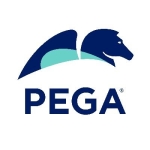What is our primary use case?
We were trying to publish a compendium of all our various assets using an Oracle-based data warehouse. We also had vendor-based solutions like Epic for electronic medical records on an SQL Server base. We had many research systems on various platforms because it's a cancer research institution.
We wanted to pull together a comprehensive data catalog to show people all the different assets we had and where they could go to find things. If there were vendor-based definitions of things, we'd pull in the definitions and various attributes. It's a heterogeneous environment data-wise. We get a lot of value from a comprehensive enterprise catalog.
It's available on our intranet through a data governance portal. You could go there for a catalog, quality reports, etc. In a year, there may have been 500 unique visitors. It was my job to publicize it, but I didn't necessarily do a good job. I worked with research groups and clinicians to get their stuff on it, and they would tell other people about it. The nice thing about Informatica is that it was easy to link from our internal web portal to their catalog. I had excellent developers working for me. It didn't require much development, and it took less and less as time went on.
What is most valuable?
I like EDC's self-service capabilities. You can put the catalog on the intranet inside the organization, so users can search for something. People in the research world have specialized systems, and you might find data from various places that sound similar.
The purpose of the Enterprise Data Catalog was to build an internally searchable catalog of stuff. You may not have permission to see this data but at least you could find out where it was and contact the person who owns it.
What needs improvement?
Interoperability is one area where EDC has room for improvement. It was challenging when the faculty took over the data world and had specific vendors they wanted to use, and some were not particularly open platforms.
It was a challenge to promote data visibility while also jumping through hoops to take some of the proprietary things and make them part of the calling, especially when the vendor doesn't necessarily support interoperability. You need to export things from a vendor program and import them again.
For how long have I used the solution?
We used Informatica for a lot of the data governance stuff I worked with when I joined the company, including things like cataloging and profiling data. The organization has really changed a lot in the last year and went with Informatica EDC. They're moving from the on-prem version to the cloud.
What do I think about the stability of the solution?
Informatica is a strong company, and EDC is a solid platform.
What do I think about the scalability of the solution?
The scalability is excellent. Informatica really knows what it's doing. They're smart people and great engineers.
How are customer service and support?
Informatica's customer service and support were decent. They listen to their customers. If something is missing or wasn't working, they will put it on their roadmap. They were listening to customers for roadmap stuff.
We wound up building a staging database to pull stuff out of the EDC, stage it, and then access that. It was open, so we would often have an intermediary layer at Oracle. If we wanted to show, for example, data quality over time, we would have a weekly quality process that would run. We staged that in an Oracle database, and the portal could access that.
Which solution did I use previously and why did I switch?
We had to build Informatica pipelines and do some Azure work to feed data to them. With data warehousing, you typically have static data that is timestamped daily or weekly and sometimes monthly or annually. We were trying to get real-time data, like blood pressure monitoring and stuff like that. That was a lot of work. I didn't do it. The integration team.
When I joined the company, it was an Oracle-based solution. Then Epic took over, which was SQL Server-based. After that, they went to Azure. Now, all the analytics are supposed to be on this platform, and it's not particularly open.
How was the initial setup?
Setting up Informatica EDC is usually pretty straightforward. The challenge is working with vendors like Oracle and Microsoft, which have APIs for integrating things. You can query what they have. They want it to play well with other vendors because they know customers don't only have one brand of product. In some cases, you get vendors in there that are, "No, we're not going to do that because we're so special." It was a challenge. The platform of choice for data initiatives at the cancer research institution is Palantir.
Which other solutions did I evaluate?
We didn't look for an alternative, but Azure has its own catalog.
What other advice do I have?
I rate Informatica Enterprise Data Catalog nine out of 10. It's a great solution, and I was happy with it. It did everything I wanted, and Informatica dramatically increased the integration points over time. When we started, it was like Oracle and SQL Server, but now they're adding NoSQL databases and others.
Informatica has user groups and listens to user input. One of the people that worked for me hosts an annual Informatica user group in Houston. You can try to build your own Oracle-based or SQL-based solution. They listened to the market, and they're working on improving the interoperability. Maybe it works better with Palantir since I left, but they work across all platforms. They're making it Cloud-based. I didn't know anything about them before I got here. I was dropped into a department where Informatica had been for at least five or six years, and it was a good choice.
Which deployment model are you using for this solution?
On-premises
Disclosure: I am a real user, and this review is based on my own experience and opinions.




















